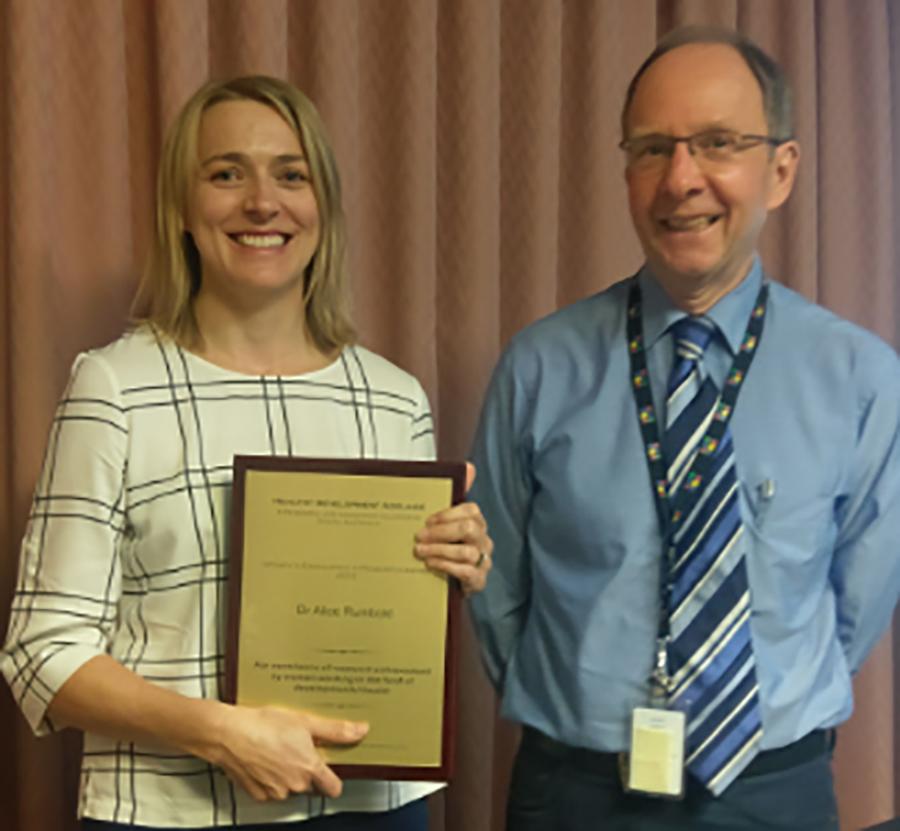Why inequalities in reproductive health make a difference

A University of Adelaide researcher whose work aims to highlight and resolve inequalities in reproductive health for Aboriginal women has today been awarded the inaugural Healthy Development Adelaide Women’s Excellence in Research Award.
Dr Alice Rumbold is a National Health and Medical Research Council (NHMRC) Career Development Fellow with the University of Adelaide’s Robinson Research Institute.
Over the past decade, Dr Rumbold has undertaken a range of projects collaboratively with remote Aboriginal communities. These projects have drawn attention to the impact of common sexually transmitted infections (STIs), such as chlamydia and human papillomavirus.
“This work has particular relevance for adolescents, who bear the greatest burden of these infections, especially 16-19 year olds. For young Aboriginal women, the high burden of STIs coincides with their peak reproductive age; young motherhood is common in many Aboriginal communities,” Dr Rumbold says.
“These infections increase the risk of pelvic inflammatory disease and infertility, with emerging evidence that they also contribute to adverse pregnancy outcomes for young women.”
Her work has resulted in changes to women’s health screening protocols in the Northern Territory, to promote early detection of complications such as pelvic inflammatory disease and gynaecological cancer.
Dr Rumbold has also identified key areas to improve the quality of maternity care provided to Aboriginal women.
“Our work showed clear opportunities for improving the management of smoking in pregnancy and adherence to recommended screening for congenital anomalies,” she says. “We were able to develop a series of resources to promote more informed discussions with Aboriginal women about screening. These resources have been widely distributed across northern Australia.”
With more than 60 journal articles, including publications in the New England Journal of Medicine and The Lancet Oncology, Dr Rumbold has found herself invited to advise governments on health inequality issues.
Her previous awards include the South Australian Young Tall Poppy of the Year and the inaugural Future Justice Medal, awarded for leadership in the promotion of social justice. She says she is honoured to be the inaugural recipient of the Healthy Development Adelaide Women’s Excellence in Research Award.
“Being able to conduct research that influences policy and results in real benefits for the community is very important to me, and I’m grateful for the recognition of that work through this award,” she says.
Healthy Development Adelaide links multidisciplinary research, service delivery and policy development, with a focus on the physical, psychological and social health of infants, children and adolescents.
